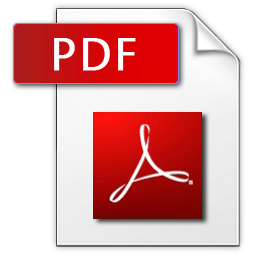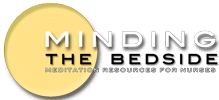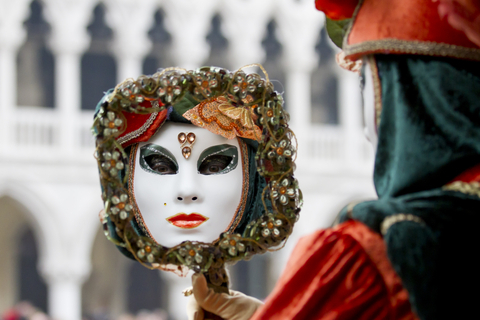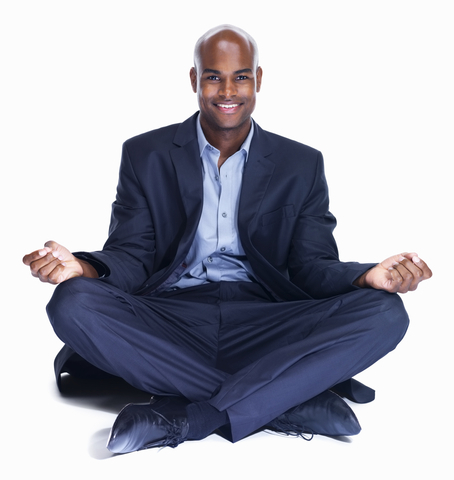What is Meditation?
This blog and many other blogs, websites, and (thousands of) books have discussed what meditation is. The following definition of “what meditation is” is based on the teachings and information that I’ve been given by my teacher, Sogyal Rinpoche, and others teachers, as well as what I’ve gained through my experience of learning to meditate. I like to use it because I feel that it captures the most important elements of what meditation is and what meditation can bring you.
I’ve been using this definition recently while instructing others in how to meditate.
Meditation is a process of gradually coming to know your own mind, coming to rest in a state of non-distraction where you release all sense of hope and fear, cease to alter your mind by following after thoughts, sensations and emotions, and learn to simply be, mindful, aware and spacious.
There’s a lot in that definition and I could probably write a blog-post on each one…maybe I’ll do that in the upcoming weeks. What do you think, would that be helpful to you? Let me know. Anyhow…
Meditation Helps Us to Connect With a Truer “Self”
When I first began to meditate (and it still happens!) I found that I kept on returning to my thoughts, emotions, ideas, distractions…everything that I use to identify myself as “me.”
What meditation does, at its deepest level, is to help you to free yourself from this grasping after a “self,” a self that you identify with your feelings, your hopes and fears, and your projections. What meditation does is to help you to free yourself from a “self” that – most of the time – causes you nothing but pain and uncertainty. Why and how?
Who Are You Without Your Thoughts and Feelings?
Just for a moment, reflect on the following questions:
- Who are you without your thoughts and feelings?
- Who are you without your hopes and fears? Who are you when you simply “are,” when you simply “be?”
- Are you your thoughts? Are you your feelings?
- What happens when your thoughts and feelings change?
- What happens when your hopes and fears change?
- If you are your thoughts, feelings, hopes and fears, do you change as immediately as they do?
- If not, then who are you…really?
.
Seriously think about this, who would you be without all of the thoughts and emotions that can plague you, or lift you up, on a daily basis? Who are you without the emotional ups and downs of your daily life?
The Gift of Learning to Meditate
The gift of learning to meditate is that as we practice and learn to simply sit with what is, our thoughts, emotions, etc., we see that “what is” changes – constantly! As we become more familiar with the changing nature of our thoughts and emotions, we begin to connect to an aspect of ourselves that is isn’t involved in or distracted by our arising thoughts, feelings, and emotions.
We begin to connect with a “self” that, for lack of better words, goes beyond the self that we’re used to identifying with. In spiritual traditions, this “self” is known by many names; “Divine” self, “Buddha-nature,” “Atman,””Ain sof”…and the list goes on.
What’s most important is not so much that we define what this nature is as that we experience it as a gift. At some point, especially when engaging this aspect of “self,” words simply cannot provide an adequate description of what this nature of our mind is. At some point, we must just “be” and connect with this nature of who we are. How to begin?
Begin By Practicing Meditation
This gift of your “original” nature, or non-distracted self, is realized by learning how to meditation and by practicing meditation. It’s a gradual process and realizing that “true” nature can take time. But, you’ve got time, right? I’ve written a lot on how to use daily activities to practice meditation. And I’ve also written about the need to have a formal practice as well. The main thing is to start, begin the process of learning who the “meditator” is and how you’re not your thoughts, emotions, and sensations. There’s no time like now to begin.
How To Start Meditating
I’ve said it before; I sometimes write these posts as if you already know how to meditate. And, if that’s the case – great! However, if you don’t know how to meditate, or are new to meditation, then download the free ebooks from this site. Also, check out the meditation category for tons of content on how to meditate and great tips on dealing with obstacles to your meditation practice. Finally, and I say this in each post, contact me if you have questions or need clarification on how to practice. That’s what I’m here for.
Here’s a quick exercise that you can download that will help you to use to begin to work with your breath as an exercise in mindfulness and as a great way to start your meditation practice.
Exercise 1 – Riding the Breath
Try working with this exercise whenever you have even a few spare minutes, or when you need a “timeout” from the busyness of life.
This site has tons of tools for learning how to meditate and be compassionate.
I encourage you to look through the HUNDREDS of articles that I’ve written and especially check out my weekly meditation tips and other useful meditation materials provided for your health and well being. Please let me know if you’d like to discuss anything with me, have any questions or need clarification regarding anything that I’ve written about.
Other Great Meditation Resources and Information:
 For More Information on How to Meditate
For More Information on How to Meditate
Please view the Related Stuff below for help getting started in your meditation practice! Also don’t forget to download my free e-book, Can Meditation Change the Way that You View Your World? and download the free e-book, How to Work with the Four Distractions to Meditation and get started learning how to deal with some of the major obstacles in meditation.




Leave A Comment